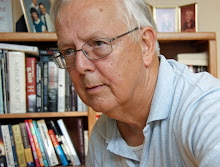This is an essay I plan to submit to a local writing competition. Any suggestions, comments, or memories of your own are most welcome.
Robin Williams joked that if you can remember the Sixties, you weren’t there.
I remember. How could I forget?
China took its Great Leap Forward and almost leaped off a cliff. The Cold War nearly heated to thermonuclear temperatures over the Cuban missile crisis. Vietnam burst into America’s consciousness like a bad LSD trip. The civil rights activists Chaney, Goodman, and Schwerner ended up in a Mississippi landfill. John F. Kennedy, Martin Luther King, and Robert F. Kennedy all died by gunfire. My father died of a heart attack. Neil Armstrong walked on the Moon. The Beatles conquered America. I married my girlfriend.
I commuted to Boston University back then. As a transfer from a junior college, I decided to join ROTC in my sophomore year to make the most of my inevitable military service. A sergeant in the Army ROTC office told me incorrectly that they didn’t accept transfer students, so I stumbled into the Air Force ROTC program. One afternoon, I walked into Economics class to hear that President Kennedy had been shot. Our instructor grimly refused to cancel class, but I could not focus on her lecture.
After my graduation in 1965, the Air Force sent me to the deep South to be a weapons controller, a job that placed me in front of a radar screen to direct fighter pilots running practice intercepts in case of a Soviet bomber attack. Many of those pilots went on to fly combat support missions in Vietnam. The experience convinced me not to become a civilian air traffic controller.
That first duty assignment landed me in Montgomery, Alabama, from where I toured radar sites in the Southeast. Once I looked up a cousin in Biloxi, Mississippi, and had trouble finding him, so I rolled down the window of my Volkswagen bug and asked a young black woman how to get to Kuhn Street. She kept walking as though I didn’t exist, which I suddenly wished were true.
After three years I received orders to spend 1968 at Fire Island Air Force Station in Alaska, within sight of Anchorage and the Chugach Mountains. Fire Island is about three miles long and a mile wide and accommodated about one hundred unaccompanied men and an unknown number of moose. People drank too much, slept too much, and in early summer played softball until after 10 p.m. Once at midnight, the ghostly lights of Aurora Borealis shimmered above us.
One day, a light plane tried to land on the narrow beach but caught its landing gear on a power line, flipped over, and exploded. In December near the end of my tour, I said goodbye to an Army officer who had been assigned to our unit on temporary duty from Fort Richardson. Lieutenant Murphy hailed from Southern California, so we called him Murph the Surf. A couple of days after our farewell, he boarded a plane to the Aleutians, replacing his boss who had come down with a cold. The plane disintegrated in mid-air in sixty-below-zero weather, its pieces scattering across a frozen lake. No one survived.
Alaska put me far from the battlefields of Vietnam and America, but the daily disaster reports reached us by television. We heard Walter Cronkite read the daily body counts from places like Pleiku—with dead enemies stacked so high, how could we not be winning? Life Magazine reported a visit by General Westmoreland to his troops who had just returned from combat. A soldier said he had killed an enemy.
“How did you know he was dead?” asked the general.
“Because I cut him in half,” the soldier replied.
“Good,” said the general.
I wondered if America had gone mad.
In Chicago, the Democrats convened amid disaster, while police beat both war protestors and innocent onlookers. Hubert Humphrey became the Democratic presidential nominee, but by the time I mailed in my absentee ballot, his position on the war seemed little different from that of Richard Nixon, except that Nixon said he had a “secret plan” to get us out of Vietnam.
After my discharge in 1969, New York Life hired me to sell insurance. Around the time of the Woodstock Festival, I sold a $6,000 policy to a recent Navy veteran who killed himself in a car wreck a week or so later. Months later, the company issued a $12,000 double indemnity check to the 19-year-old widow and mother. I’d planned to quit my job anyway, so my delivery of the check to the woman’s father-in-law marked the end of my sales career.
For me personally, my marriage to Nancy provided the one enduring legacy of the Sixties. In 1961 we went to the high school senior prom together, and in 2011 we will attend our fiftieth high school reunion together.
So I do remember the Sixties. How could I forget?




















